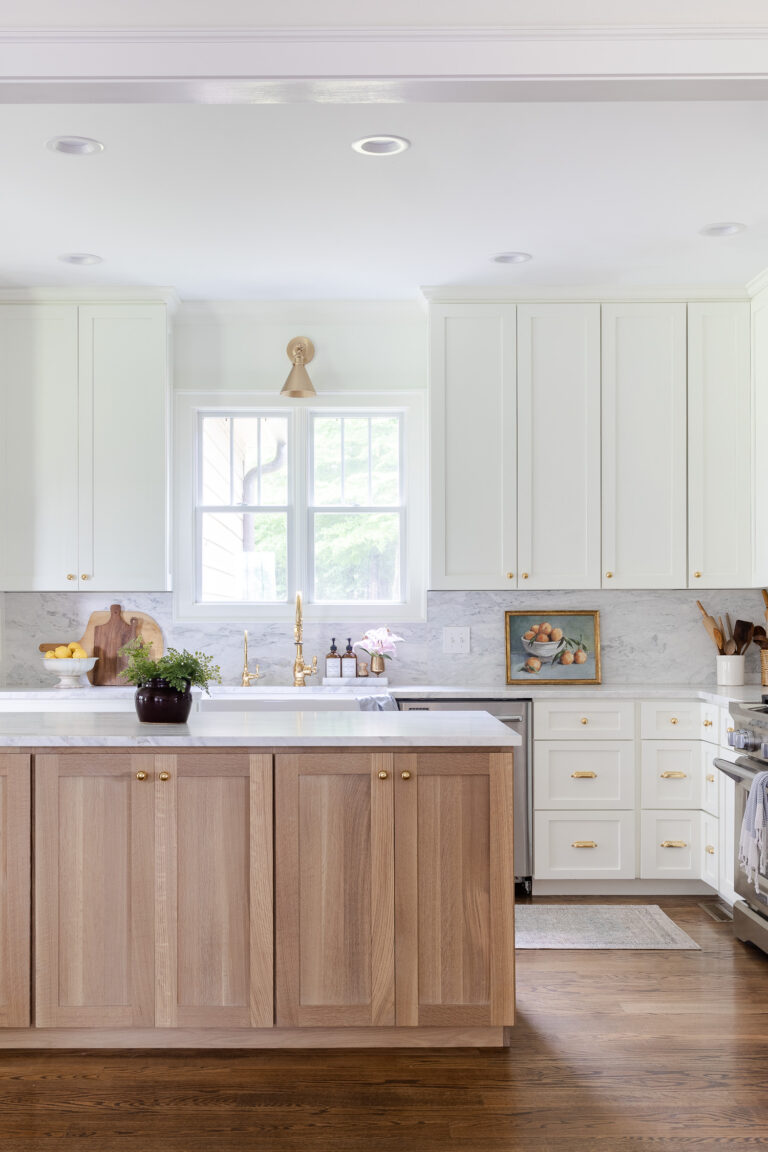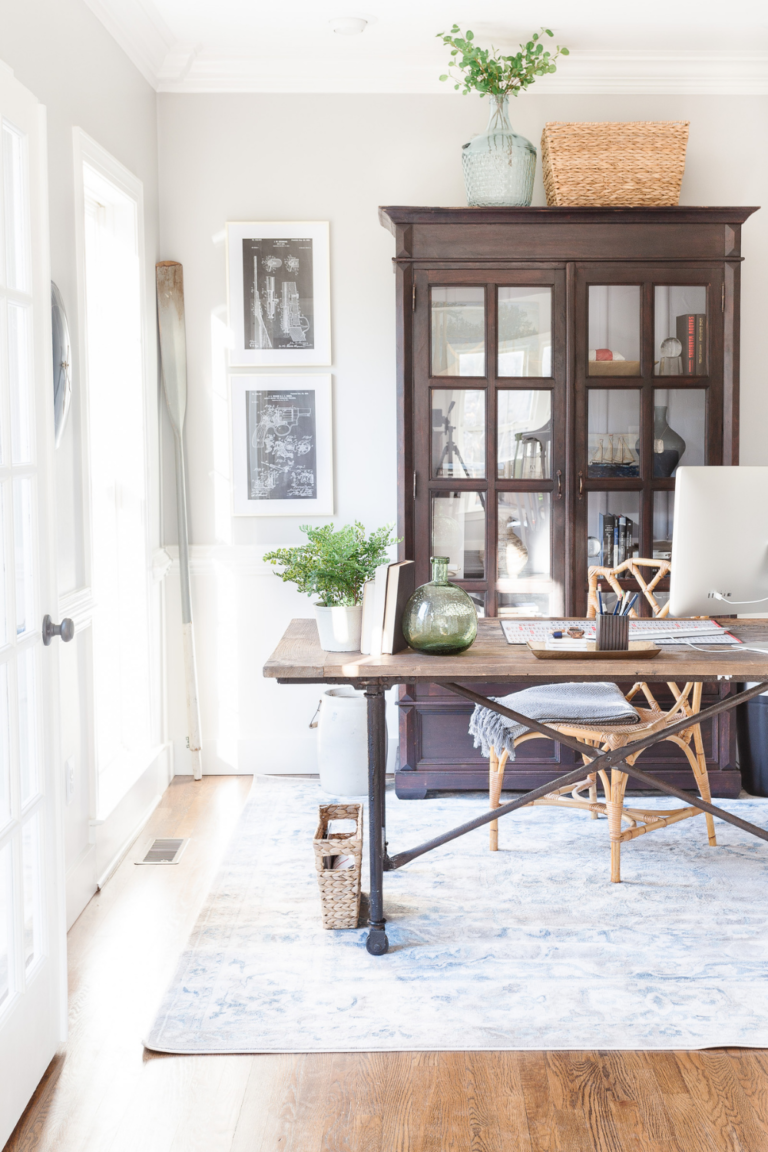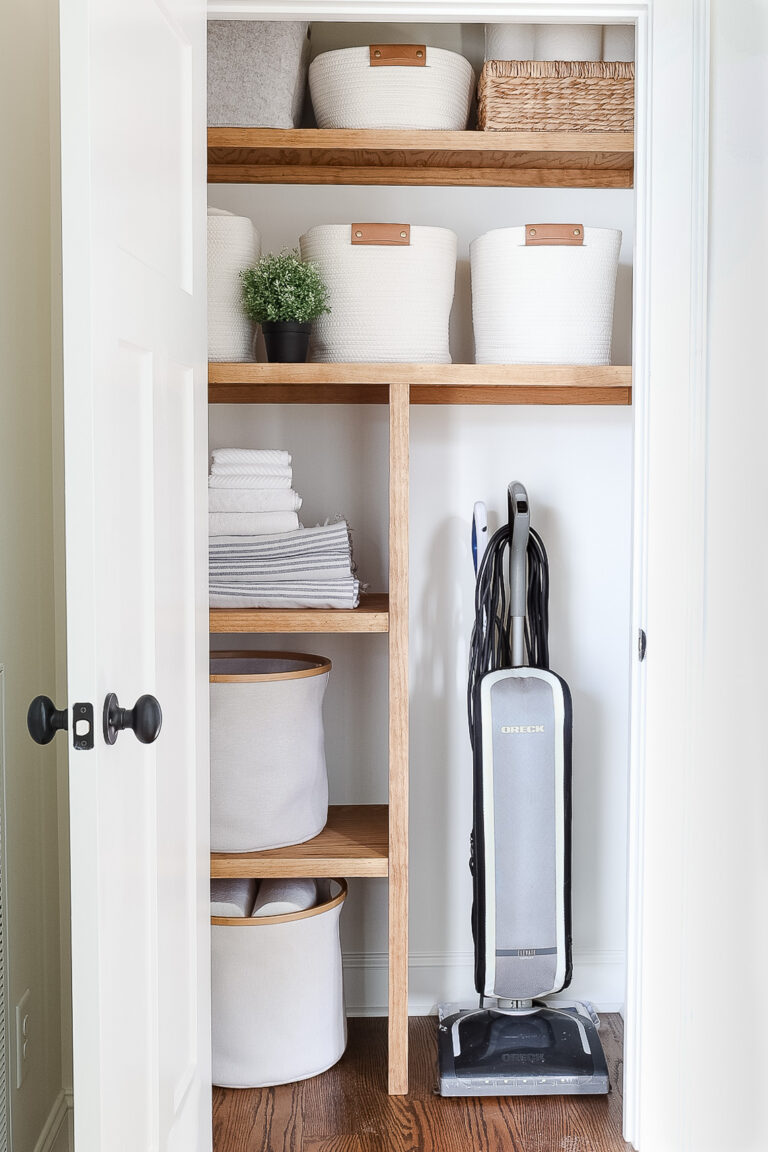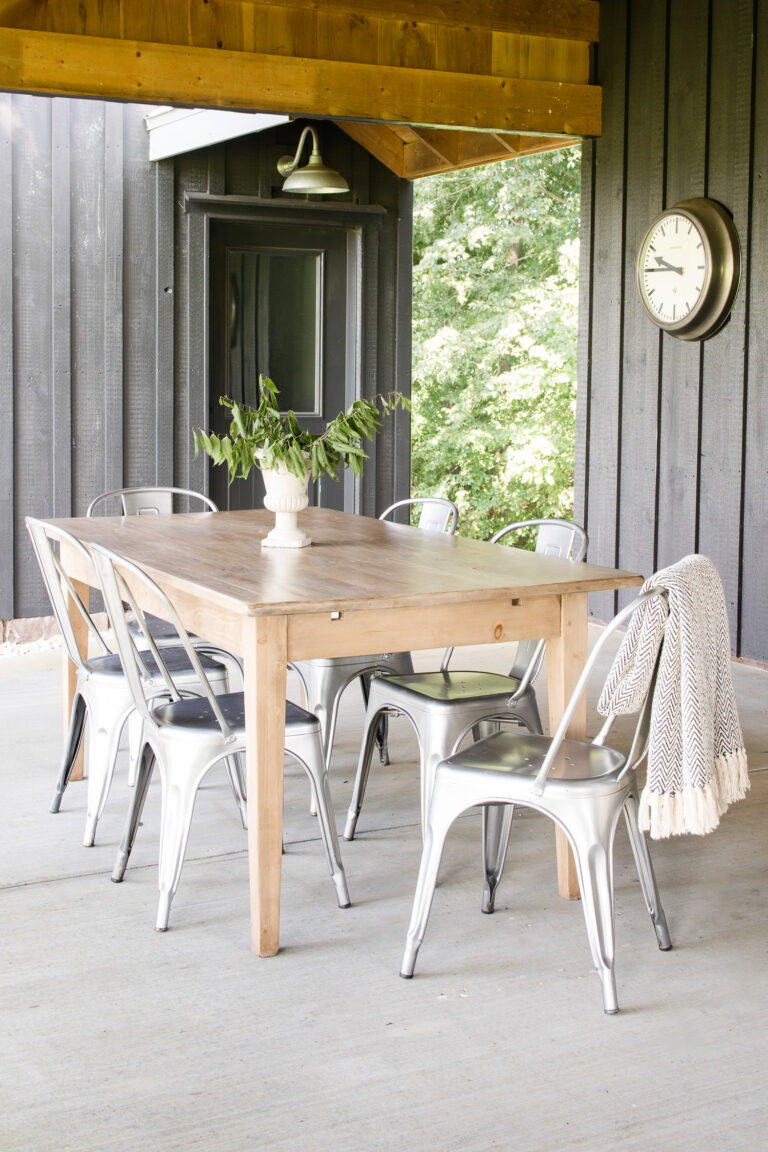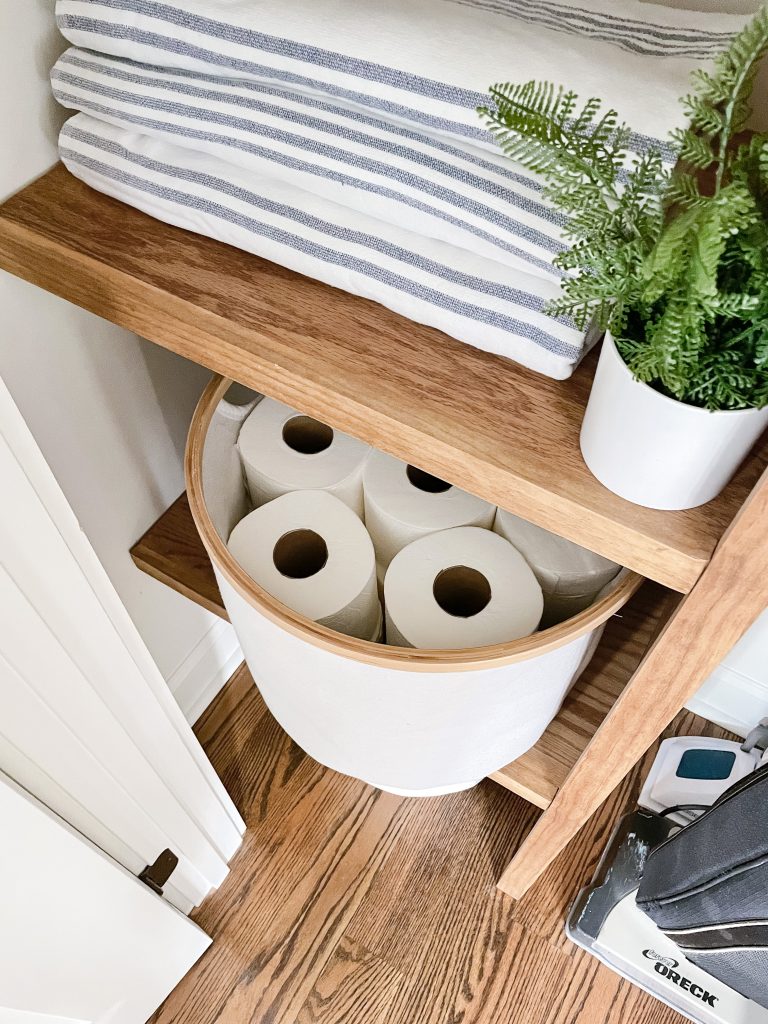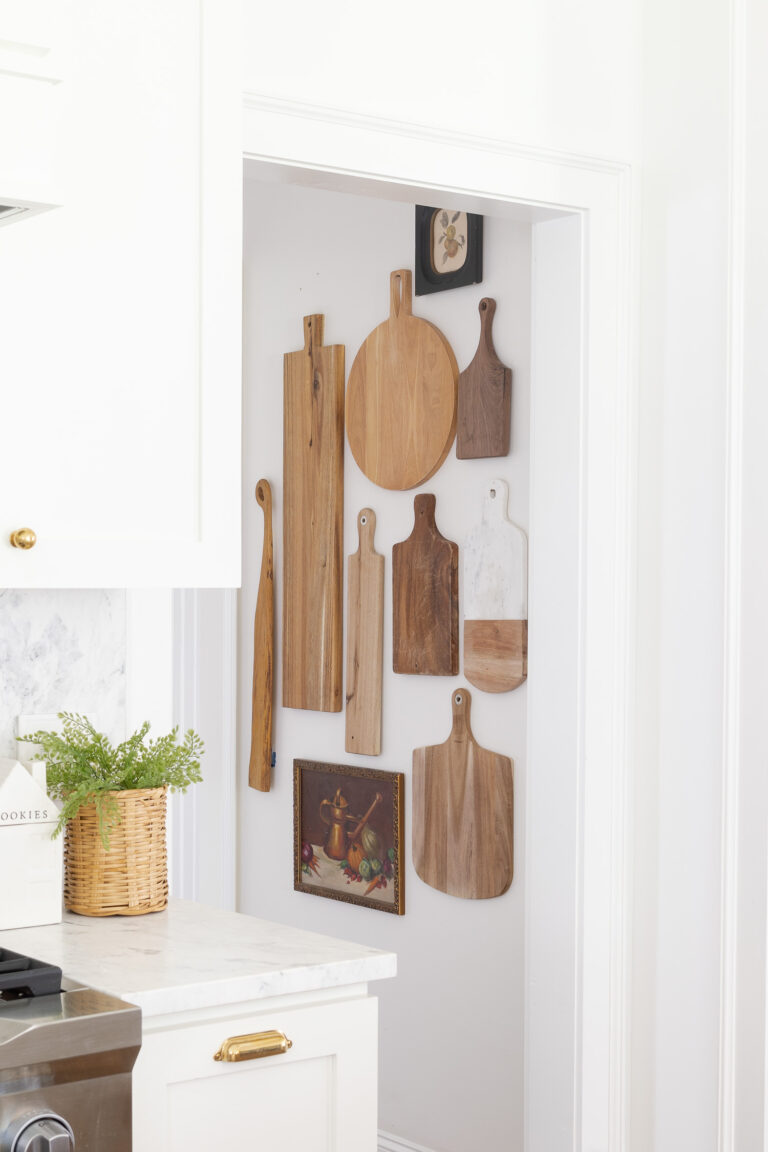Benefits of PVC Trim and Moulding
PVC trim and moulding is a great alternative to woods high prices. You might not have considered PVC before but here are some benefits.
When I began planning to install picture frame moulding in our bedroom I quickly discovered that I needed an alternative to wood because of the cost. I was familiar with PVC or plastic trim as we have used it in some small exterior projects at our previous home. As I began looking around the trim and moulding aisle I soon discovered that PVC trim would be the way to go, but I wasn’t convinced as we normally used wood for interior moulding projects. After some research, and the desire to save money and still complete my project, I went with PVC and now have used it in two of our interior home trim projects. So far it has been great and thought I would share with you what I have discovered in case you are also looking for an alternative to woods skyrocketing prices.
Affiliate links are provided below. Please see my full disclosure.
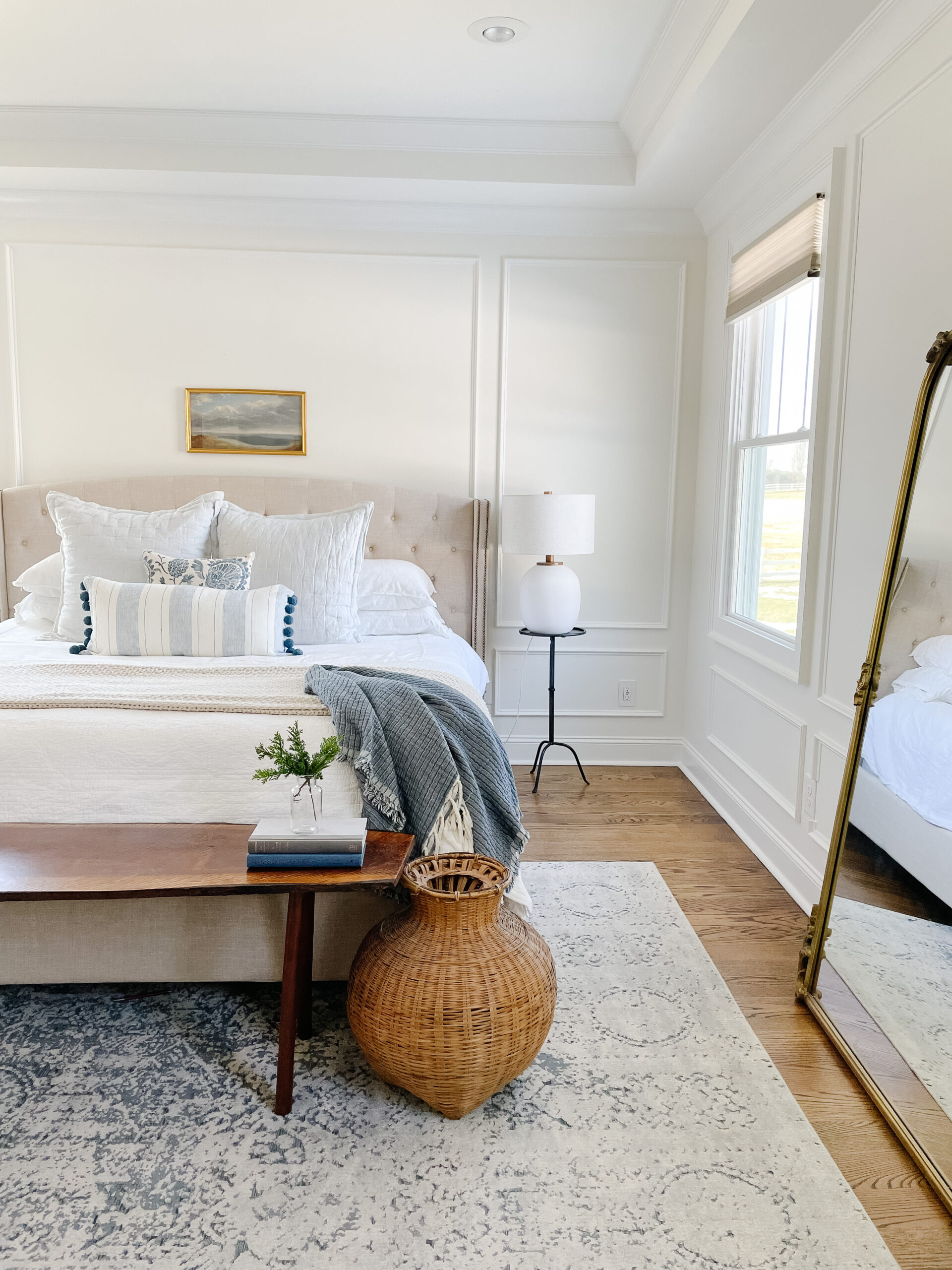
PVC Trim Disclaimer
While I am here to share the benefits of PVC trim; I am not here to say that one should never use wood trim. We continue to use wood as well as some PVC. My goal is to shed light on PVC trim for interior use and how and where one could possibly incorporate it. Many don’t know of PVC trim as an option and alternative to woods high prices. This is not a post against wood but more of an informative post regarding PVC trim as an option so you can make your best decision on what product to use and where to you use it.
This post explains the use of PVC for interiors; not exteriors.
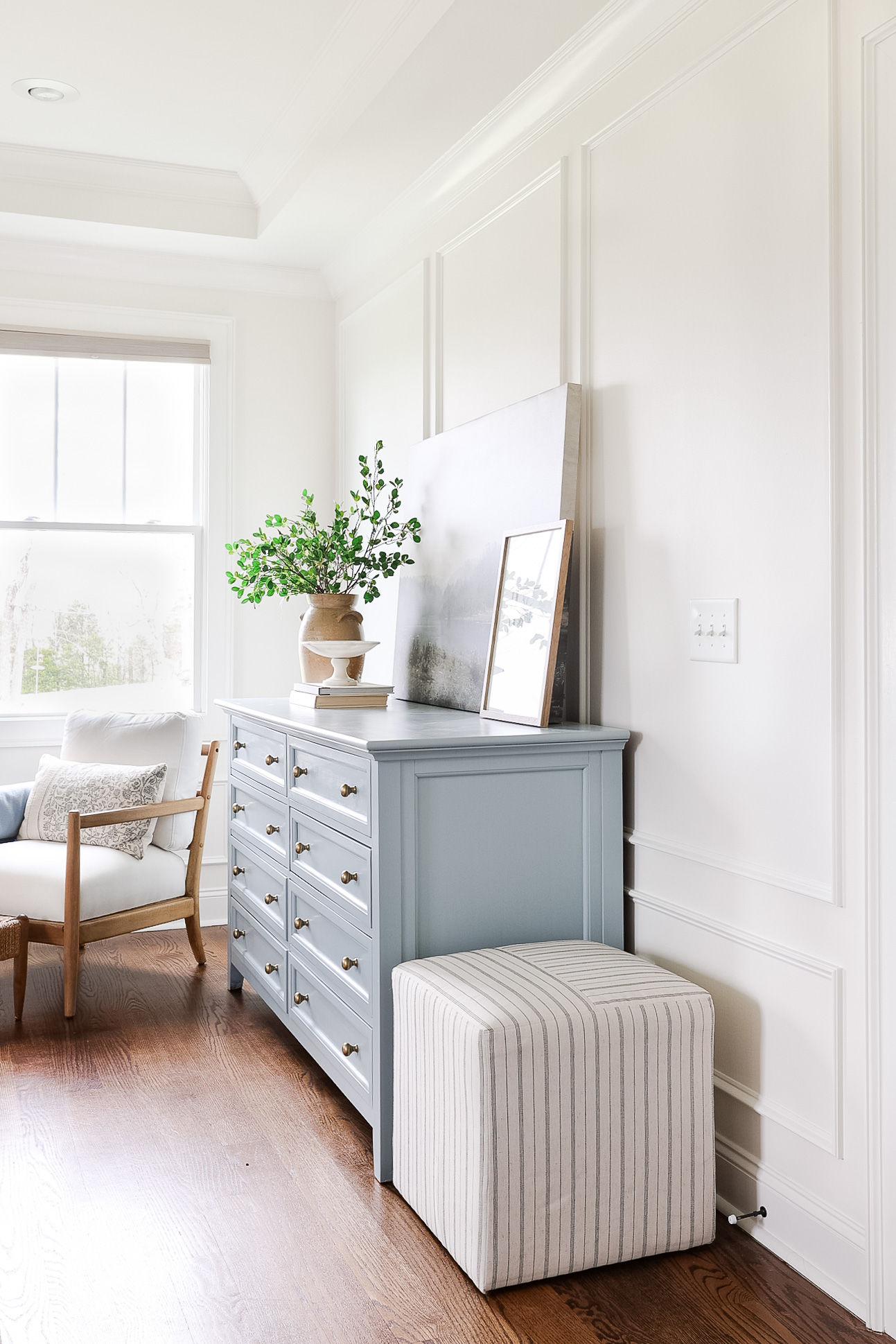
What is PVC?
PVC is short for PVC Polyvinylchloride and it is a synthetic plastic polymer that doesn’t separate easily. This product is widely used in exterior trim projects because of its durability and is a soft yet durable plastic and can be used in place of wood for many building and construction projects.
PVC has a honeycomb-like structure, is lightweight yet durable and is a moisture-resistant engineered plastic.
PVC doesn’t look or feel like plastic once installed and painted. When I look or touch the trim we have done in our home you cannot tell that is a plastic material. It acts and wears like wood.
Benefits of PVC Trim
PVC products can last as long as 35 years and is a lot longer than what wood or another material can last. Even after decades of installing, PVC board and trim can look as good as new. PVC building products do not emit any harmful greenhouse gases during their lifespan. Paint on PVC trim will last three to five times longer than paints on wood or wood composites due to the absence of moisture in the substrate.
This material remains unaffected by moisture and does not rot or feed mold. Temperature changes can only alter the length of PVC trim slightly. PVC will not swell in thickness due to moisture. PVC trim is entirely fire-retardant and self-extinguishing. These boards are lightweight and slightly flexible, so easier for professionals to install.
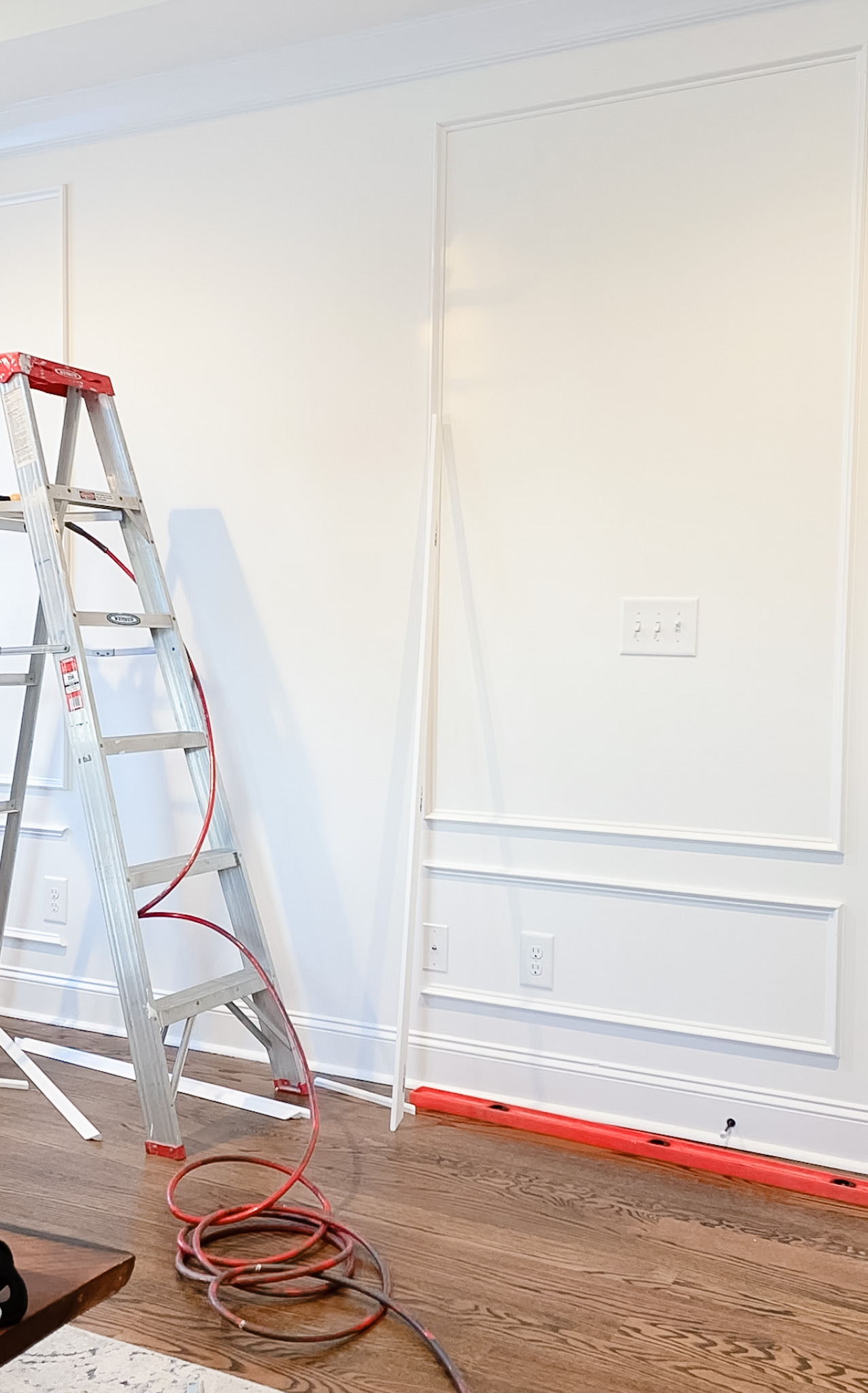
Cons of PVC Trim
There are problems with PVC trim. PVC can expand because of heat but this shouldn’t be an issue with installing PVC inside. If you want to stain your trim you will need to install wood instead of PVC because it cannot be stained as wood can be.
It can be easily dinged up if coming into contact with tools, etc. so you want to be more careful. Sometimes its hard to find a piece of PVC moulding in the store that doesn’t have some nicks and dings to it.
When you cut PVC moulding it doesn’t have as clean an edge as wood does; it has a porous look to it and can be hard to sand it out and you rather have to deal with it.
PVC saw dust sticks to everything and every time I cut a board and came into the house the PVC dust followed me. I recommend using a mask and gloves when cutting it as you don’t want to breathe in these little particles.
Pros and Cons of Wood Trim
I love wood trim just like anyone else and until a couple of years ago we always used wood trim for our moulding projects, but the cost has become insulting and unbearable. Although I do wonder how long the price of this plastic trim will stay relatively cost effective. Have a feeling the price of PVC will climb as well.
Pros Of Wood
One advantage of wood trim is its natural look and feel. I am not normally a plasticy kind a gal; that is why I struggle with quartz countertops in our kitchen and went with marble. Love the feeling of real and genuine products. Wood is not manmade and is sustainable; it has a genuineness about it that is difficult to duplicate. Since it is a natural product it doesn’t cause pollution in manufacturing as PVC comes from petroleum.
Wood can be stained; PVC cannot. If you are wanting to add trim to your home and want to use a rich mahogany color; you will not be able to use PVC because it can only take paint; not stain. Because of woods porous nature it holds paint or stain easily. Wood has more character overall and quite frankly there is nothing that can take the place of real, sustainable wood products.
Cons of Wood
Despite its classic look and feel and its appeal wood can have disadvantages too. Just like anything in life; nothing is totally perfect. Wood absorbs moisture from the air causing it to expand and then shrink when it dries out. This leads to cupping or bowing, so that wood looks curved and warped. This happens more in an exterior environment or an interior environment that has moisture like a bathroom around a tub or toilet. When wood gets wet it generally has to be replaced.
Trapped moisture in wood can also lead to mold and mildew growth and wood is also a food source for termites. When wood is exposed to moisture it dries out and the paint or the stain on its surface can crack or chip. Wood also needs a consistent application of paint or stain, to protect the wood from expanding and shrinking.
The major con of wood was the price which is what led me to use some PVC moulding in our interior projects.
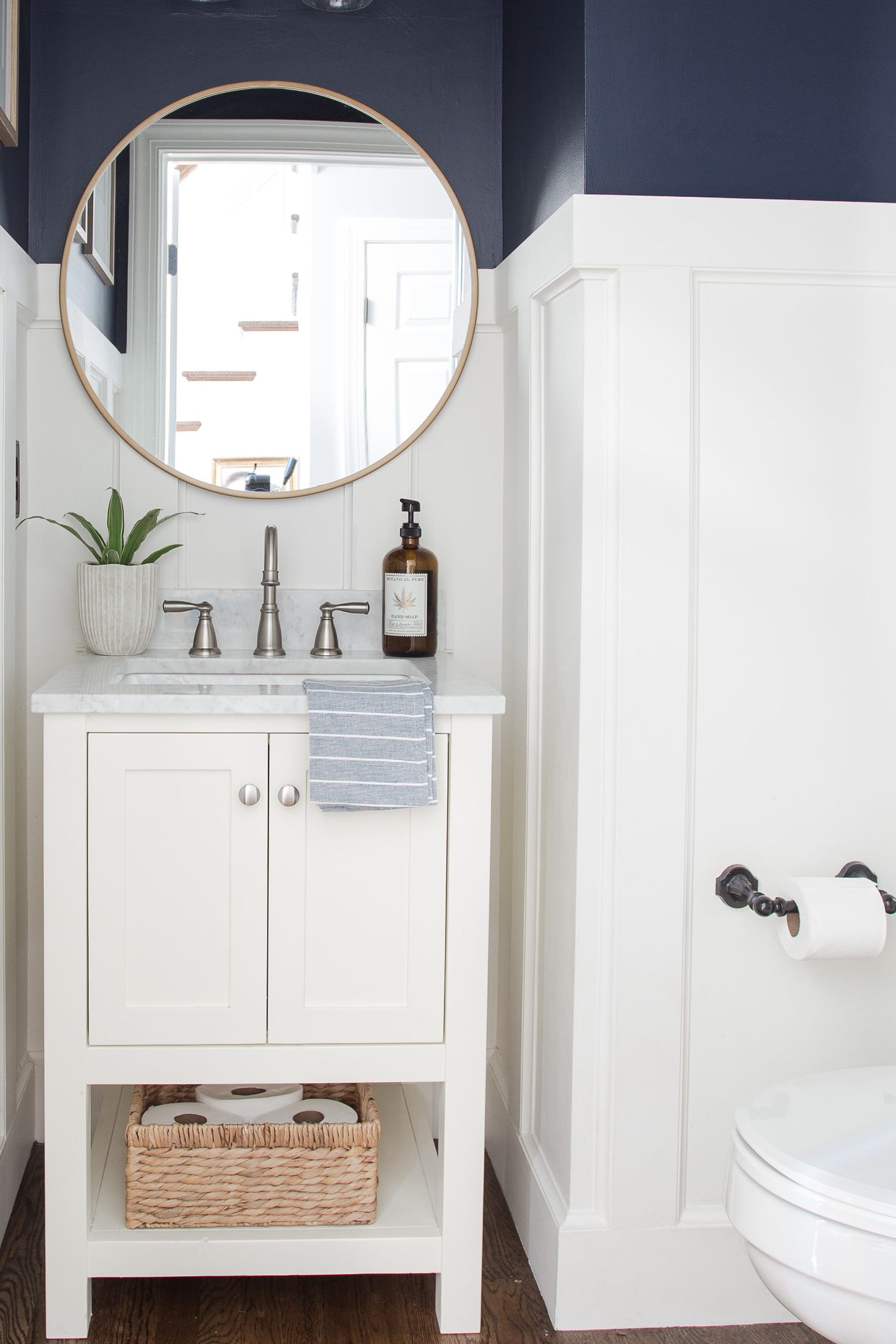
Where Can you Use PVC Trim?
You can use PVC trim anywhere you want to add trim both on your homes exterior and interior trim projects. A lot of builders are using PVC trim on homes exterior because of its lower cost and lesser required maintenance for the homeowner. I tend to prefer some of the plastic trim on the exterior so we don’t have to deal with wood rot and painting/staining every few years.
In our dining room we are adding board and batten and have mixed the wood with the pvc trim that is inset into our board and batten.
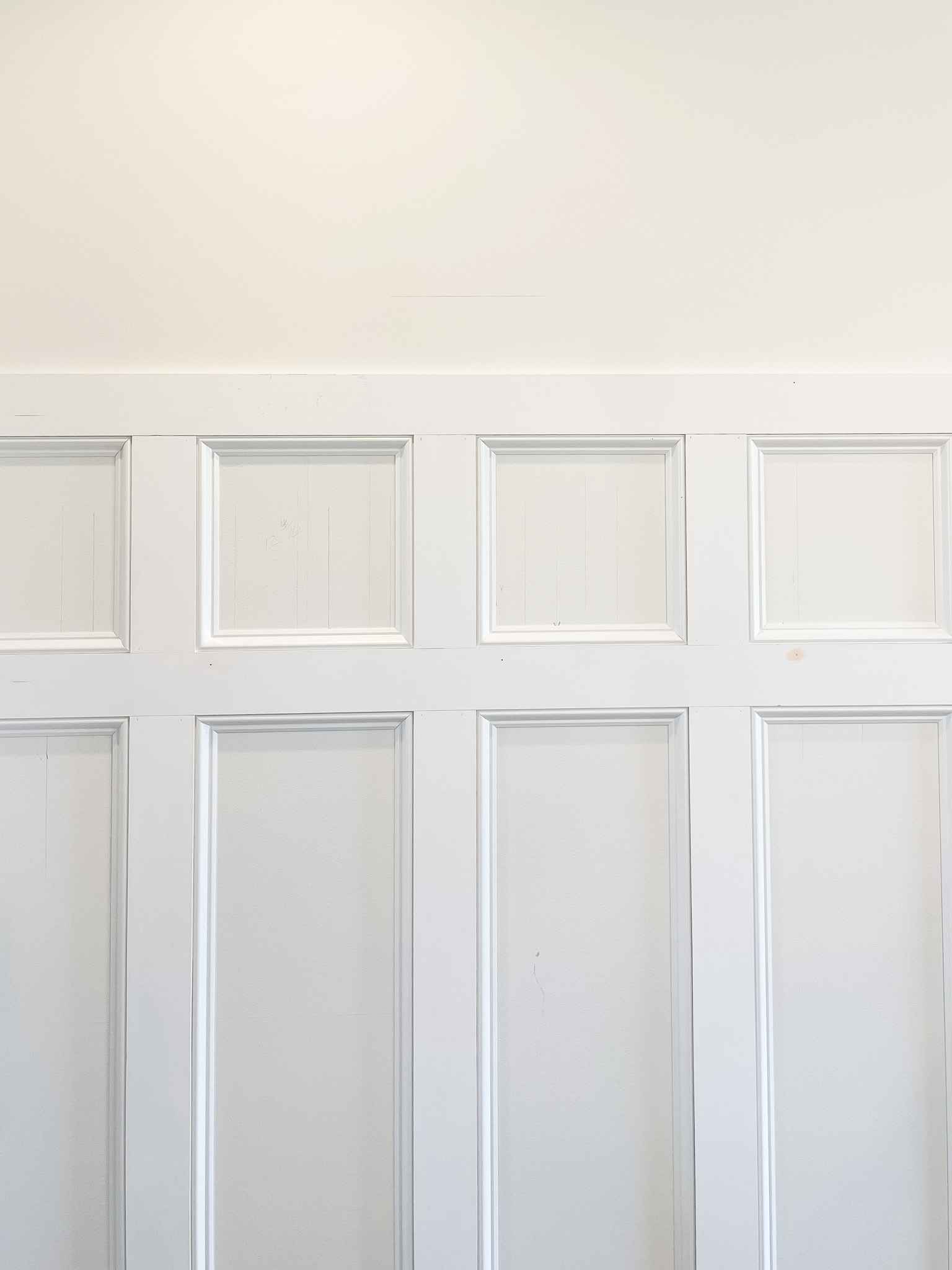
Using PVC Trim for Interiors
You can use PVC molding inside. Most of us think of PVC trim as being an exterior product, but it is being used indoors more than you think.
When we remodeled the bathrooms of our previous home, we used plastic for our baseboards instead of wood because of any possible moisture issues. PVC trim and pvc moulding is waterproof. Since the trim butts right up to the tub and of course goes around the back of the toilet and for a kids bathroom we knew there might be excess moisture from shower/tub spray or the occasional missing the mark of the toilet. If the baseboards get wet then we didn’t have to worry about warping and pulling away from the wall and chipped paint.
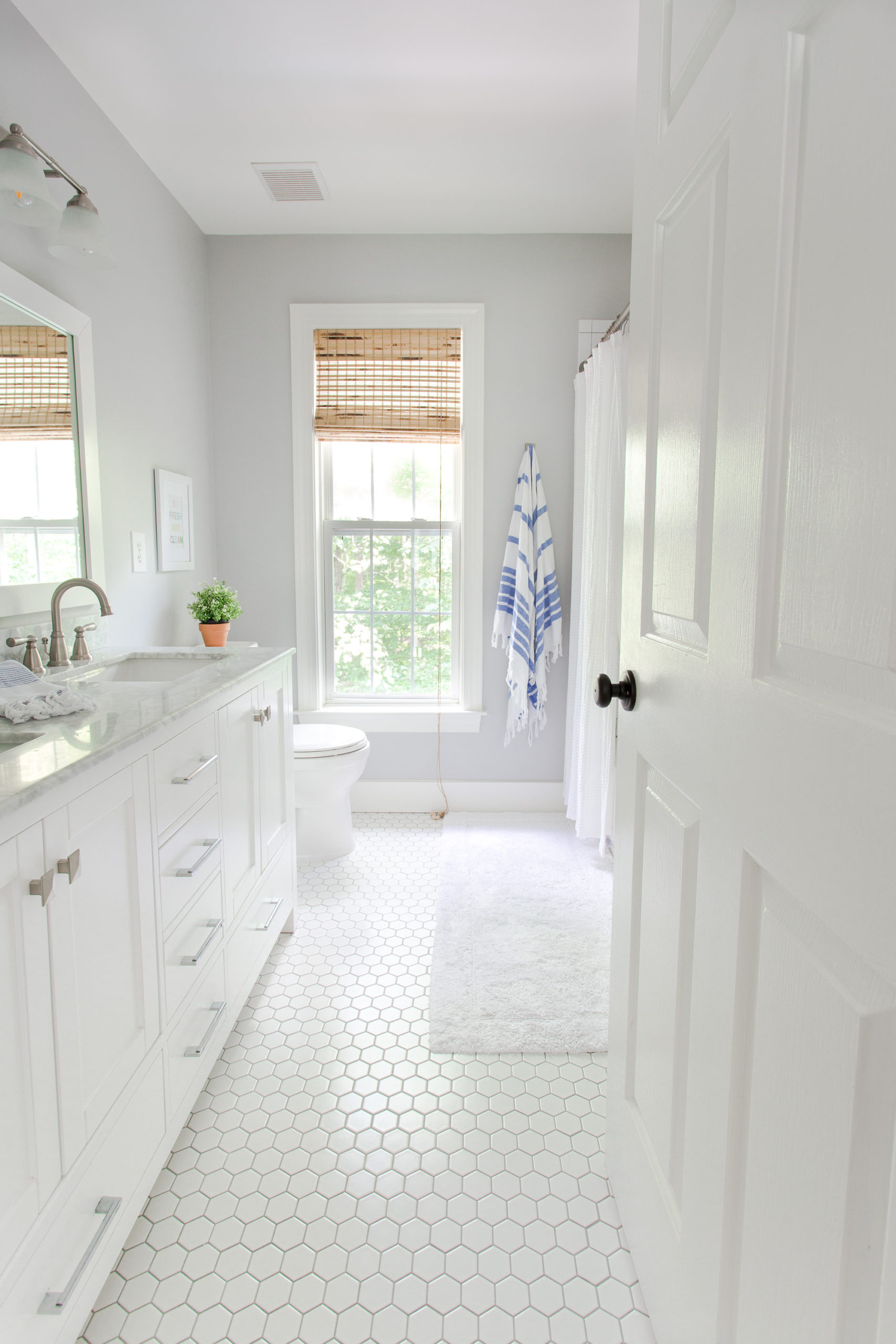
PVC Baseboards is a good option in wet environments. You can also use PVC moulding for all your interior trim needs if you wanted to; however, I still prefer wood for most of my trim projects. We did use plastic base cap moulding for our bedroom and also used the same product for the board and batten inset trim we put up in our dining room. We did mix wood and plastic trim and no one will ever know the difference…unless of course they read this post!
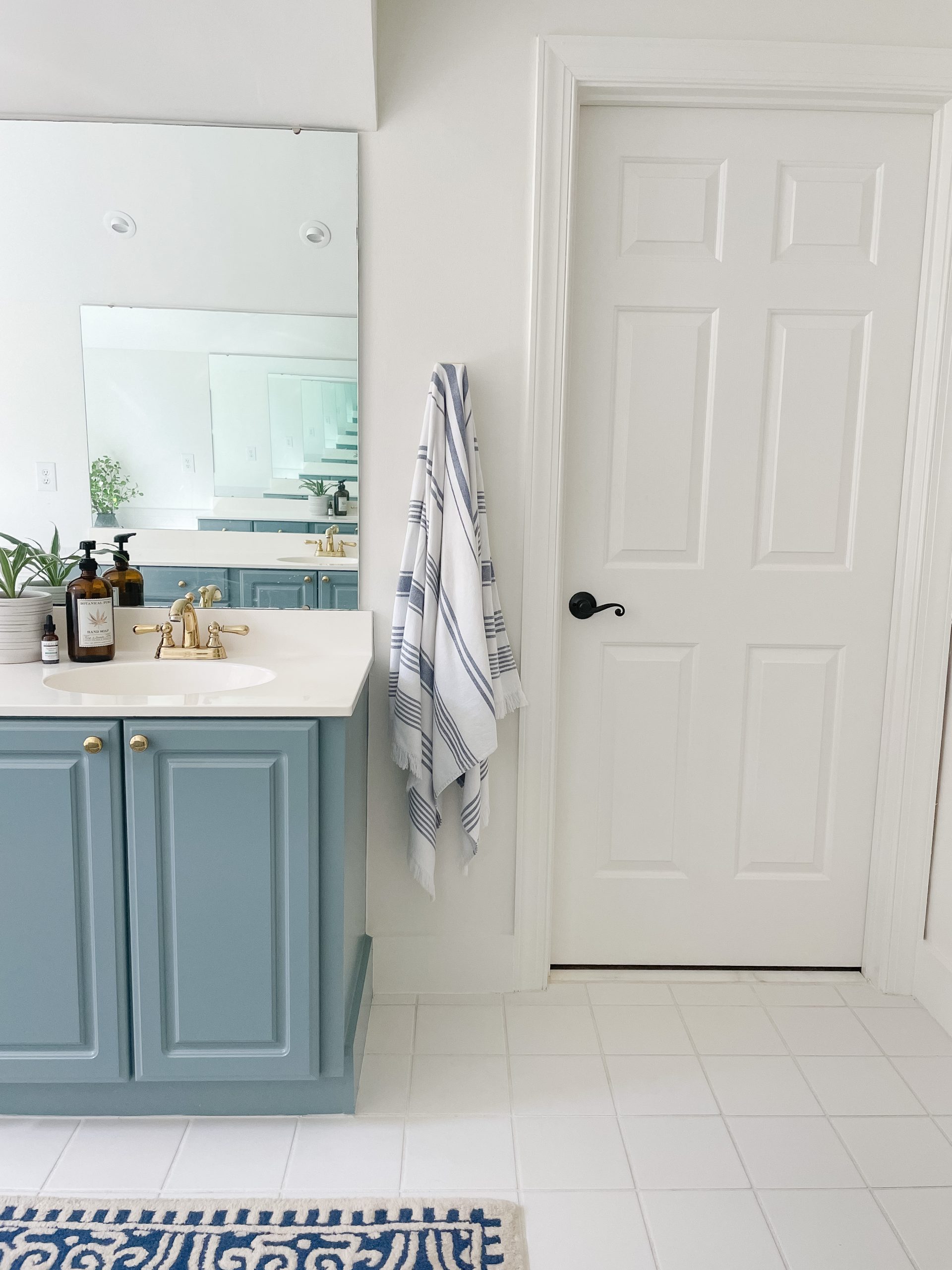
Cost of PVC Trim
A few years ago PVC trim was more costly than wood, but ever since 2020 we have seen a steady increase in wood pricing and many are looking for alternatives to wood. Now, unfortunately, PVC is less costly than it matching wood cousin but sometimes I wonder for how long.
I saw that in 2020 the same base cap moulding I used for our bedroom and dining room was around $3.20 per 8ft section. When I purchased the same product in January 2022 it cost me $5.78. Compared to its wood alternative at $12.40 per 8ft section. That is a $6.62 cost difference making the cost of the PVC trim less expensive by far. It was a no brainer for me and for the project I was doing the PVC trim would be just fine for the overall look and feel. I have no regrets of going with the plastic moulding.
DISCLAIMER: Prices of wood and plastic are constantly changing. The prices listed here are based on when this post was written and items were purchased. In the future, it might be less costly to purchase wood trim instead of plastic as in the past.
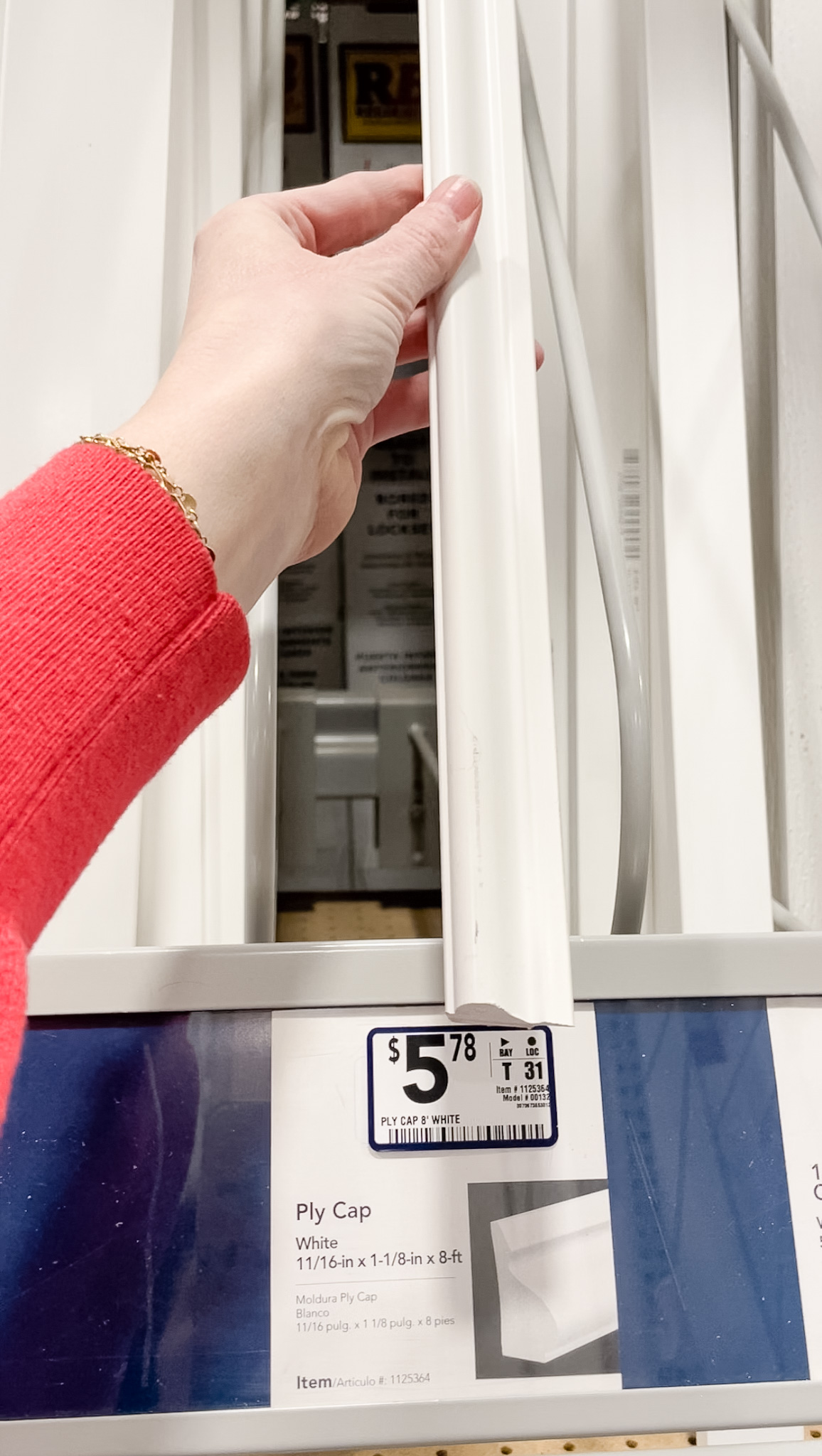
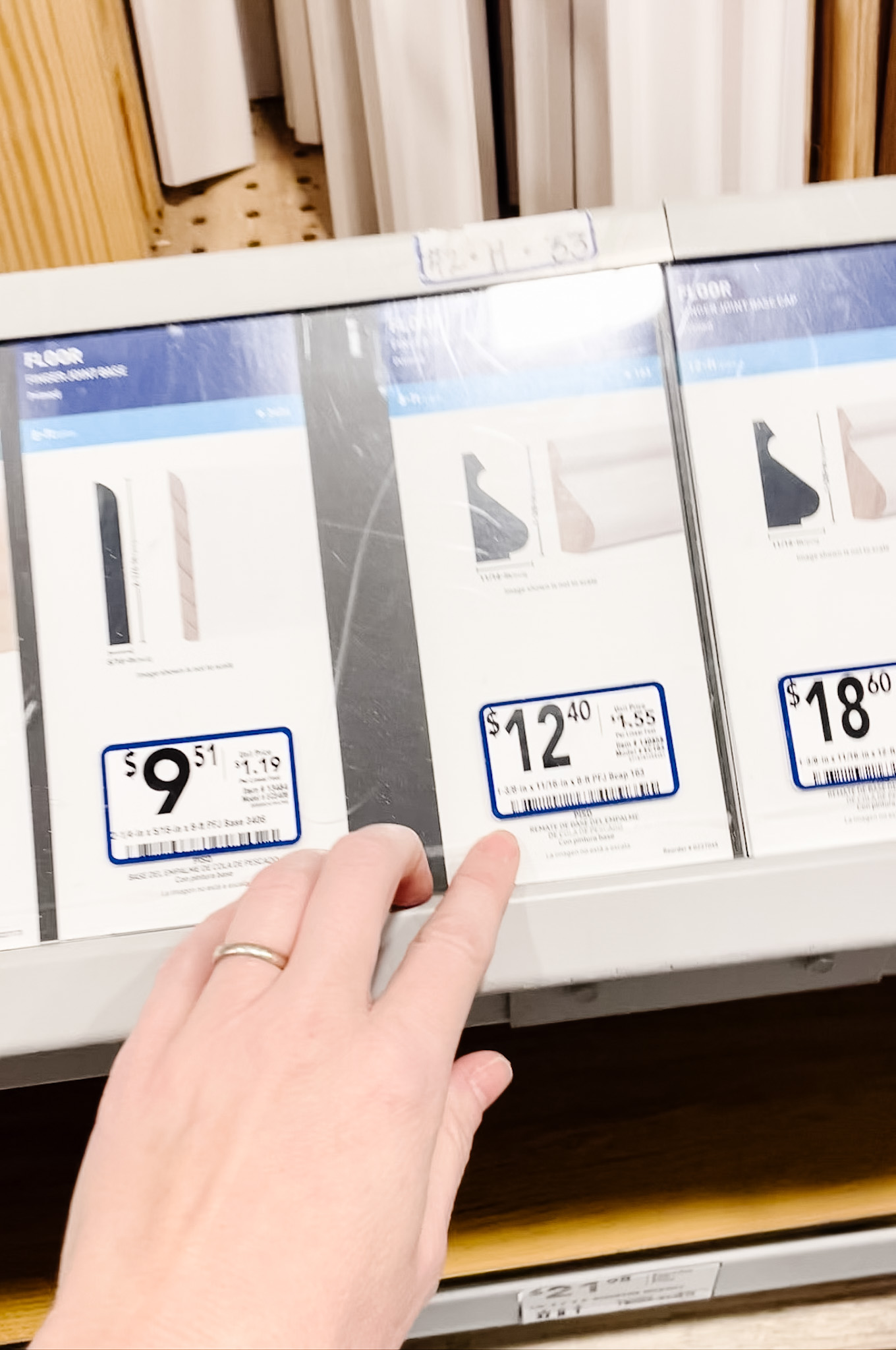
Final Thoughts on PVC Trim and Moulding
Would I use PVC products again? Yes! And because of the cost and ease of use we have used the same plastic base cap trim for two different rooms and have had no regrets. If wood were cheaper would I have used it instead? Likely…I like real wood and the projects we did were not outside or around a moisture environment. Will I regret using plastic moulding in the future and wish I would have used wood? Not likely at all! I won’t even think about it.
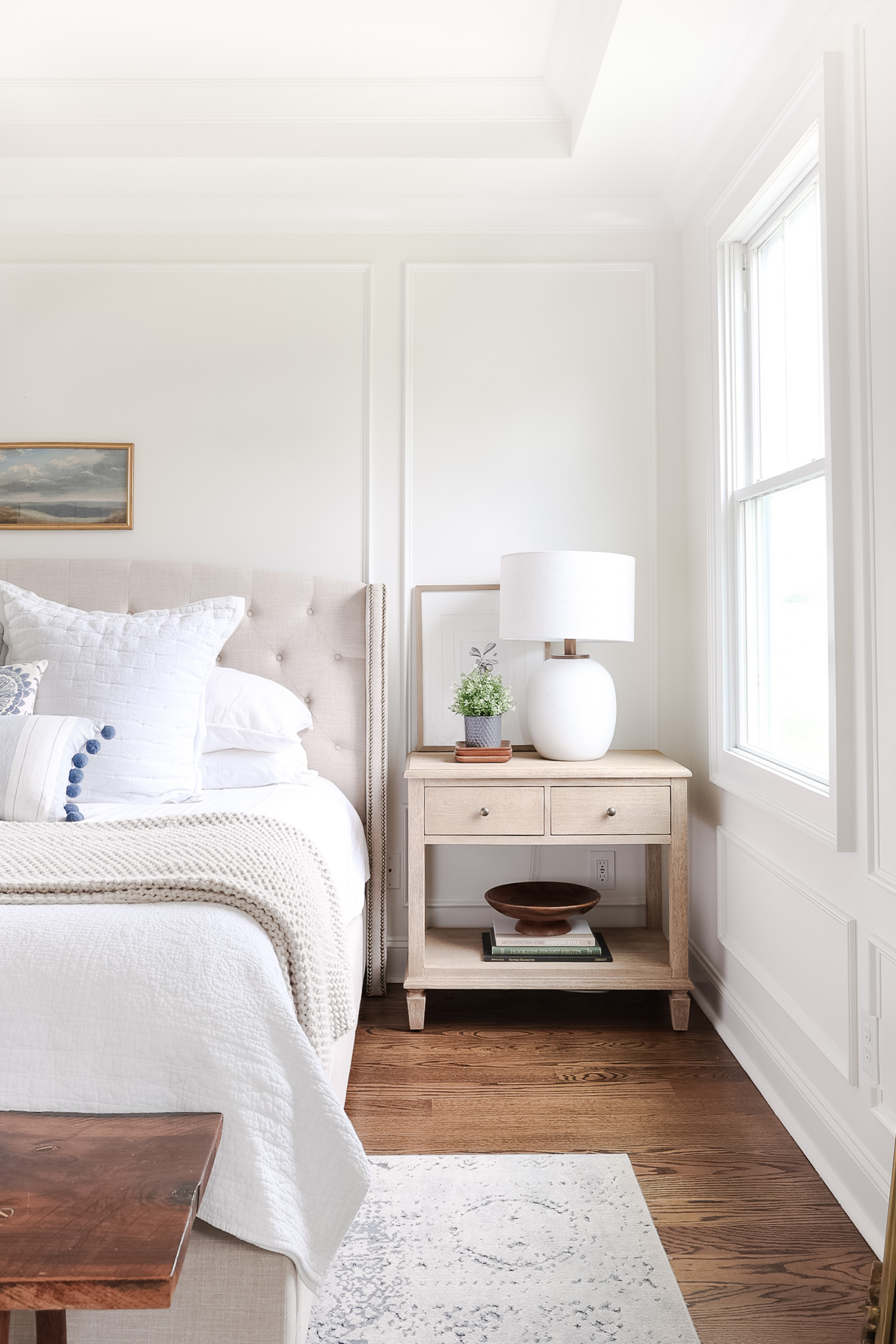
RELATED DIY Decor POSTS:
Benefits of PVC Trim and Moulding
Follow for home decor, DIY and to shop: Instagram | Pinterest | LiketoKnowit

